Collaboration Journal
Special Feature
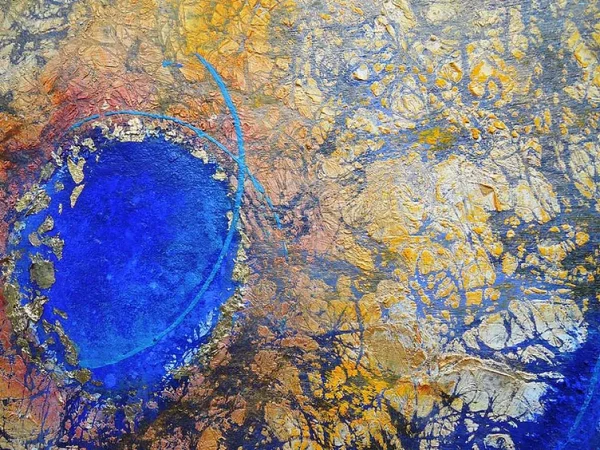
The Ideal Spirit of Poetry
SRI AUROBINDO
The Future Poetry, Sri Aurobindo’s vision of the unrealized potential of this art form, contains two parts. Part one weaves together mantra, mechanics, and the history of poetry. The following first chapter of part two summarizes his whole thesis. The paintings of Marie-Claire Barsotti beautifully illustrate the chapter.—Editors
TO ATTEMPT TO PRESAGE THE FUTURE TURN OR DEVELOPMENT of mind or life in any of its fields must always be a hazardous venture. For life and mind are not like physical Nature; the processes of physical Nature run in precise mechanical grooves, but these are more mobile and freer powers. The gods of life and still more the gods of mind are so incalculably self-creative that even where we can distinguish the main lines on which the working runs or has so far run, we are still unable to foresee with any certainty what turn they will yet take or of what new thing they are in labour.
It is therefore impossible to predict what the poetry of the future will actually be like. We can see where we stand today, but we cannot tell where we shall stand a quarter of a century hence. All that one can do is to distinguish for oneself some possibilities that lie before the poetic mind of the race and to figure what it can achieve if it chooses to follow out certain great openings which the genius of recent and contemporary poets has made free to us; but what path it will actually choose to tread or what new heights attempt, waits still for its own yet unformed decision. What would be the ideal spirit of poetry in an age of the increasingly intuitive mind: that is the question which arises from all that has gone before and to which we may attempt some kind of answer.
I have spoken in the beginning of the Mantra as the highest and intensest revealing form of poetic thought and expression. What the Vedic poets meant by the Mantra was an inspired and revealed seeing and visioned thinking, attended by a realisation, to use the ponderous but necessary modern word, of some inmost truth of God and self and man and Nature and cosmos and life and thing and thought and experience and deed. It was a thinking that came on the wings of a great soul rhythm, chandas. For the seeing could not be separated from the hearing; it was one act. Nor could the living of the truth in oneself which we mean by realisation, be separated from either, for the presence of it in the soul and its possession of the mind must precede or accompany in the creator or human channel that expression of the inner sight and hearing which takes the shape of the luminous word.
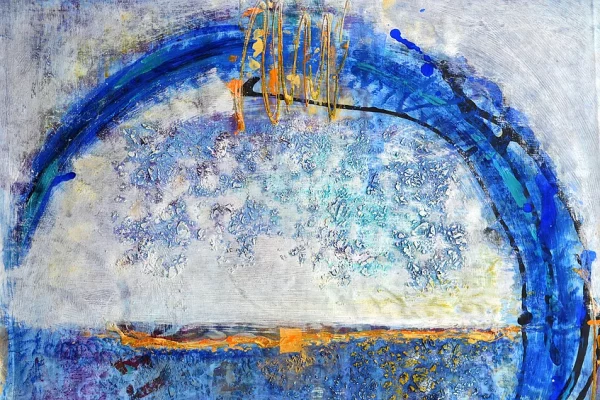
The Mantra is born through the heart and shaped or massed by the thinking mind into a chariot of that godhead of the Eternal of whom the truth seen is a face or a form. And in the mind too of the fit outward hearer who listens to the word of the poet-seer, these three must come together, if our word is a real Mantra; the sight of the inmost truth must accompany the hearing, the possession of the inmost spirit of it by the mind and its coming home to the soul must accompany or follow immediately upon the rhythmic message of the Word and the mind’s sight of the Truth. That may sound a rather mystic account of the matter, but substantially there could hardly be a more complete description of the birth and effect of the inspired and revealing word, and it might be applied, though usually on a more lowered scale than was intended by the Vedic Rishis, to all the highest outbursts of a really great poetry.
But poetry is the Mantra only when it is the voice of the inmost truth and is couched in the highest power of the very rhythm and speech of that truth. And the ancient poets of the Veda and Upanishads claimed to be uttering the Mantra because always it was this inmost and almost occult truth of things which they strove to see and hear and speak and because they believed themselves to be using or finding its innate soul rhythms and the sacrificial speech of it cast up by the divine Agni, the sacred Fire in the heart of man.
The Mantra in other words is a direct and most heightened, an intensest and most divinely burdened rhythmic word which embodies an intuitive and revelatory inspiration and ensouls the mind with the sight and the presence of the very self, the inmost reality of things and with its truth and with the divine soul-forms of it, the Godheads which are born from the living Truth. Or, let us say, it is a supreme rhythmic language which seizes hold upon all that is finite and brings into each the light and voice of its own infinite.
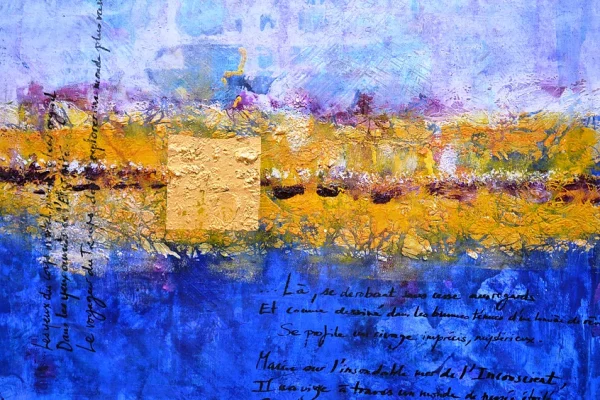
This is a theory of poetry, a view of the rhythmic and creative self-expression to which we give that name, which is very different from any that we now hold, a sacred or hieratic ars poetica only possible in days when man believed himself to be near to the gods and felt their presence in his bosom and could think he heard some accents of their divine and eternal wisdom take form on the heights of his mind.
And perhaps no thinking age has been so far removed from any such view of our life as the one through which we have recently passed and even now are not well out of its shadow, the age of materialism, the age of positive outward matter of fact and of scientific and utilitarian reason. And yet curiously enough—or naturally, since in the economy of Nature opposite creates itself out of opposite and not only like from like,—it is to some far-off light at least of the view of ourselves at our greatest of which such ideas were a concretised expression that we seem to be returning. For we can mark that although in very different circumstances, in broader forms, with a more complex mind and an enormously enlarged basis of culture and civilisation, the gain and inheritance of many intermediate ages, it is still to something very like the effort which was the soul of the Vedic or at least the Vedantic mind that we almost appear to be on the point of turning back in the circle of our course.
Now that we have seen minutely what is the material reality of the world in which we live and have some knowledge of the vital reality of the Force from which we spring, we are at last beginning to seek again for the spiritual reality of that which we and all things secretly are. Our minds are once more trying to envisage the self, the spirit of Man and the spirit of the universe, intellectually, no doubt, at first, but from that to the old effort at sight, at realisation within ourselves and in all is not a very far step. And with this effort there must rise too on the human mind the conception of the godheads in whom this Spirit, this marvellous Self and Reality which broods over the world, takes shape in the liberated soul and life of the human being, his godheads of Truth and Freedom and Unity, his godheads of a greater more highly visioned Will and Power, his godheads of Love and universal Delight, his godheads of universal and eternal Beauty, his godheads of a supreme Light and Harmony and Good.
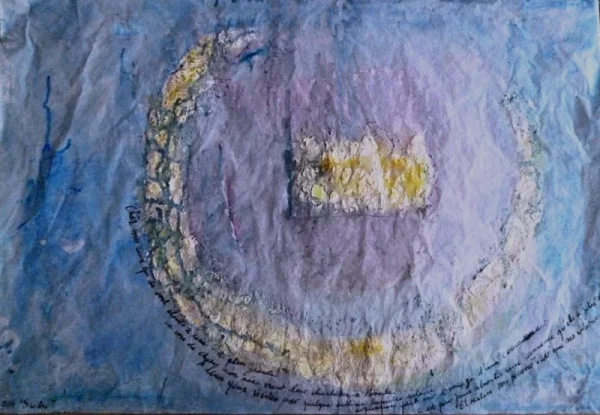
The new ideals of the race seem already to be affected by some first bright shadow of these things, and even though it be only a tinge, a flush colouring the duller atmosphere of our recent mentality, there is every sign that this tinge will deepen and grow, in the heavens to which we look up if not at once in the earth of our actual life. But this new vision will not be as in the old times something hieratically remote, mystic, inward, shielded from the profane, but rather a sight which will endeavour to draw these godheads again to close and familiar intimacy with our earth and embody them not only in the heart of religion and philosophy, nor only in the higher flights of thought and art, but also, as far as may be, in the common life and action of man.
For in the old days these things were Mysteries, which men left to the few, to the initiates and by so leaving them lost sight of them in the end, but the endeavour of this new mind is to reveal, to divulge and to bring near to our comprehension all mysteries,—at present indeed making them too common and outward in the process and depriving them of much of their beauty and inner light and depth, but that defect will pass,—and this turn towards an open realisation may well lead to an age in which man as a race will try to live in a greater Truth than has as yet governed our kind. For all that we know, we now tend to make some attempt to form clearly and live. His creation too will then be moved by another spirit and cast on other lines. And if this takes place or even if there is some strong mental movement towards it, poetry may recover something of an old sacred prestige.
There will no doubt still be plenty of poetical writing which will follow the old lines and minister to the old commoner aesthetic motives, and it is as well that it should be so, for the business of poetry is to express the soul of man to himself and to embody in the word whatever power of beauty he sees; but also there may now emerge too and take the first place souls no longer niggardly of the highest flame, the poet-seer and seer-creator, the poet who is also a Rishi, master singers of Truth, hierophants and magicians of a diviner and more universal beauty.
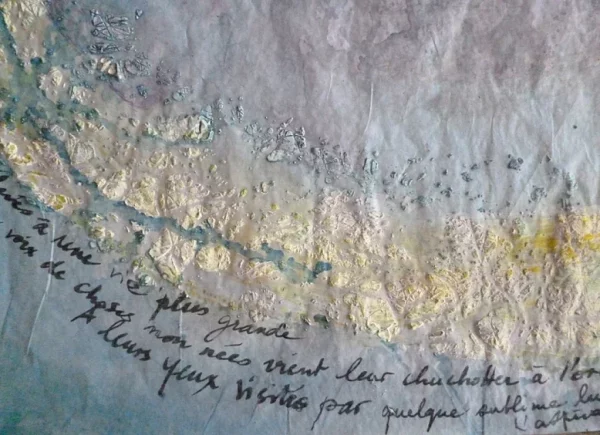
There has no doubt always been something of that in the greatest masters of poetry in the great ages, but to fulfil such a role has not often been the one fountain idea of their function; the mind of the age has made other demands on them, needed at that time, and the highest things in this direction have been rare self-exceedings and still coloured by and toned to the half light in which they sang. But if an age comes which is in common possession of a deeper and greater and more inspiring Truth, then its masters of the rhythmic word will at least sing on a higher common level and may rise more often into a fuller intenser light and capture more constantly the greater tones of which this harp of God, to use the Upanishad’s description of man’s created being, is secretly capable.
A greater era of man’s living seems to be in promise, whatever nearer and earthier powers may be striving to lead him on a side path away to a less exalted ideal, and with that advent there must come a new great age of his creation different from the past epochs which he counts as his glories and superior to them in its vision and motive. But first there must intervene a poetry which will lead him towards it from the present faint beginnings. It will be aided by new views in philosophy, a changed and extended spirit in science and new revelations in the other arts, in music, painting, architecture, sculpture, as well as high new ideals in life and new powers of a reviving but no longer limited or obscurantist religious mind.
A glint of this change is already visible. And in poetry there is already the commencement of such a greater leading; the conscious effort of Whitman, the tone of Carpenter, the significance of the poetry of A. E., the rapid immediate fame of Tagore are its first signs. The idea of the poet who is also the Rishi has made again its appearance. Only a wider spreading of the thought and mentality in which that idea can live and the growth of an accomplished art of poetry in which it can take body, are still needed to give the force of permanence to what is now only an incipient and just emerging power. Mankind satiated with the levels is turning its face once more towards the heights, and the poetic voices that will lead us thither with song will be among the high seer voices. For the great poet interprets to man his present or reinterprets for him his past, but can also point him to his future and in all three reveal to him the face of the Eternal.
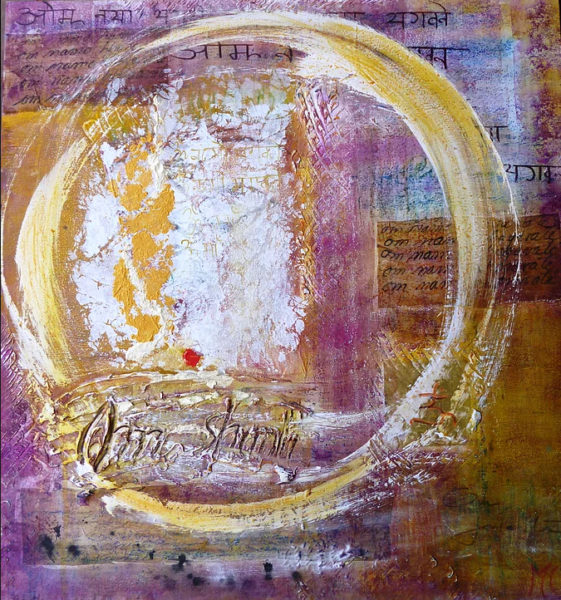
An intuitive revealing poetry of the kind which we have in view would voice a supreme harmony of five eternal powers, Truth, Beauty, Delight, Life and the Spirit.These are indeed the five greater ideal lamps or rather the five suns of poetry. And towards three of them the higher mind of the race is in many directions turning its thought and desire with a new kind and force of insistence. The intellectual side of our recent progress has in fact been for a long time a constant arduous pursuit of Truth in certain of its fields; but now the limited truth of yesterday can no longer satisfy or bind us. Much has been known and discovered of a kind which had not been found or had only been glimpsed before, but the utmost of that much appears now very little compared with the infinitely more which was left aside and ignored and which now invites our search. The description which the old Vedic poet once gave of the seeking of divine Truth, applies vividly to the mind of our age, “As it climbs from height to height, there becomes clear to its view all the much that is yet to be done.”
But also it is beginning to be seen that only in some great awakening of the self and spiritual being of man is that yet unlived truth to be found and that infinite much to be achieved. It is only then that the A greater era of man’s living seems to be in promise … But first there must intervene a poetry which will lead him towards it from the present faint beginnings. fullness of a greater knowledge for man living on earth can unfold itself and get rid of its coverings and again on his deeper mind and soul, in the words of another Vedic poet-seer, “New states come into birth, covering upon covering awaken to knowledge, till in the lap of the Mother one wholly sees.”
This new-old light is now returning upon our minds. Men no longer so completely believe that the world is a machine and they only so much transient thinking matter, a view of existence in the midst of which however helpful it might be to a victorious concentration on physical science and social economy and material well-being, neither religion nor philosophic wisdom could renew their power in the fountains of the spirit nor art and poetry, which are also things of the soul like religion and wisdom, refresh themselves from their native sources of strength. Now we are moving back from the physical obsession to the consciousness that there is a soul and greater self within us and the universe which finds expression here in the life and the body. But the mind of today insists too and rightly insists on life, on humanity, on the dignity of our labour and action. We have no longer any ascetic quarrel with our mother earth, but rather would drink full of her bosom of beauty and power and raise her life to a more perfect greatness. Thought now dwells much on the idea of a vast creative will of life and action as the secret of existence.
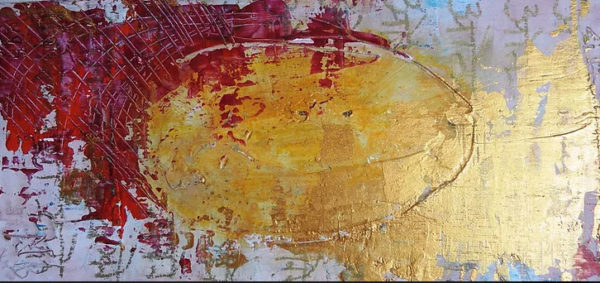
That way of seeing, though it may give room for a greater power of art and poetry and philosophy and religion, for it brings in real soul-values, has by its limitation its own dangers. A spirit which is all life because it is greater than life, is rather the truth in which we shall most powerfully live. Aditi, the infinite Mother, cries in the ancient Vedic hymn to Indra the divine Power now about to be born in her womb, “This is the path of old discovered again by which all the gods rose up into birth, even by that upward way shouldst thou be born in thy increase; but go not forth by this other to turn thy mother to her fall,” but if, refusing the upward way, the new spirit in process of birth replies like the god, “By that way I will not go forth, for it is hard to tread, let me come out straight on the level from thy side; I have many things to do which have not yet been done; with one I must fight and with another I must question after the Truth,” then the new age may do great things, as the last also did great things, but it will miss the highest way and end like it in a catastrophe.
There is no reason why we should so limit our new birth in time; for the spirit and life are not incompatible, but rather a greater power of the spirit brings a greater power of life. Poetry and art most of all our powers can help to bring this truth home to the mind of man with an illumining and catholic force, for while philosophy may lose itself in abstractions and religion turn to an intolerant otherworldliness and asceticism, poetry and art are born mediators between the immaterial and the concrete, the spirit and life. This mediation between the truth of the spirit and the truth of life will be one of the chief functions of the poetry of the future.
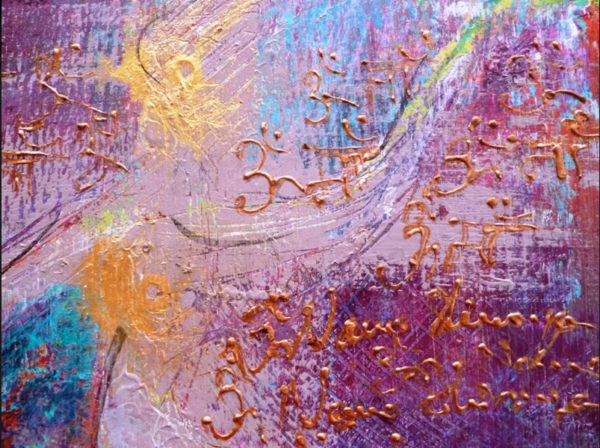
The two other sister lamps of God, colour suns of the Ideal, which our age has most dimmed and of whose reviving light it is most sadly in need, but still too strenuously outward and utilitarian to feel sufficiently their absence, Beauty and Delight, are also things spiritual and they bring out the very heart of sweetness and colour and flame of the other three. Truth and Life have not their perfection until they are suffused and filled with the completing power of delight and the fine power of beauty and become one at their heights with this perfecting hue and this secret essence of themselves; the spirit has no full revelation without these two satisfying presences. For the ancient Indian idea is absolutely true that delight, Ananda, is the inmost expressive and creative nature of the free self because it is the very essence of the original being of the Spirit.
But beauty and delight are also the very soul and origin of art and poetry. It is the significance and spiritual function of art and poetry to liberate man into pure delight and to bring beauty into his life. Only there are grades and heights here as in everything else and the highest kinds of delight and beauty are those which are one with the highest Truth, the perfection of life and the purest and fullest joy of the self-revealing Spirit. Therefore will poetry most find itself and enter most completely into its heritage when it arrives at the richest harmony of these five things in their most splendid and ample sweetness and light and power; but that can only wholly be when it sings from the highest skies of vision and ranges through the widest widths of our being.
These powers can indeed be possessed in every scale, because on whatever grade of our ascent we stand, the Spirit, the divine Self of man is always there, can break out into a strong flame of manifestation carrying in it all its godheads in whatever form, and poetry and art are among the means by which it thus delivers itself into expression.

Therefore the essence of poetry is eternally the same and its essential power and the magnitude of the genius expended may be the same whatever the frame of the sight, whether it be Homer chanting of the heroes in god-moved battle before Troy and of Odysseus wandering among the wonders of remote and magic isles with his heart always turned to his lost and far-off human hearth, Shakespeare riding in his surge of the manifold colour and music and passion of life, or Dante errant mid his terrible or beatific visions of Hell and Purgatory and Paradise, or Valmiki singing of the ideal man embodying God and egoistic giant Rakshasa embodying only fierce self-will approaching each other from their different centres of life and in their different law of being for the struggle desired by the gods, or some mystic Vamadeva or Vishwamitra voicing in strange vivid now forgotten symbols the action of the gods and the glories of the Truth, the battle and the journey to the Light, the double riches and the sacrificial climbing of the soul to Immortality.
For whether it be the inspired imagination fixed on earth or the soul of life or the inspired reason or the high intuitive spiritual vision which gives the form, the genius of the great poet will seize on some truth of being, some breath of life, some power of the spirit and bring it out with a certain supreme force for his and our delight and joy in its beauty. But nevertheless the poetry which can keep the amplitude of its breadth and nearness of its touch and yet see all things from a higher height will, the rest being equal, give more and will more fully satisfy the whole of what we are and therefore the whole of what we demand from this most complete of all the arts and most subtle of all our means of aesthetic self-expression.
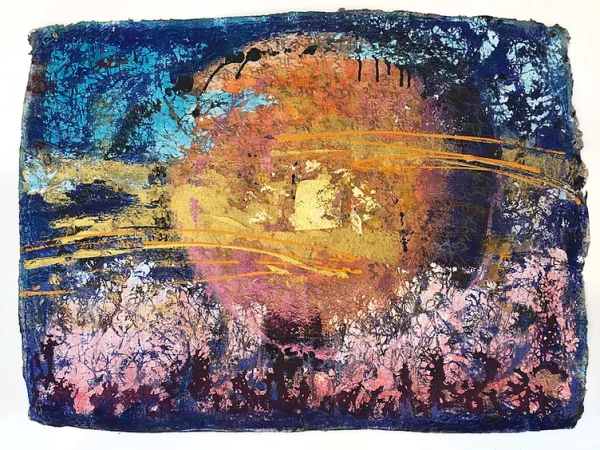
The poetry of the future, if it fulfils in amplitude the promise now only there in rich hint, will kindle these five lamps of our being, but raise them up more on high and light with them a broader country, many countries indeed now hidden from our view, will make them not any longer lamps in some limited temple of beauty, but suns in the heavens of our highest mind and illuminative of our widest as well as our inmost life. It will be a poetry of a new largest vision of himself and Nature and God and all things which is offering itself to man and of its possible realisation in a nobler and more divine manhood; and it will not sing of them only with the power of the imaginative intelligence, the exalted and ecstatic sense or the moved joy and passion of life, but will rise to look at them from an intenser light and embody them in a more revealing force of the word. It will be first and most a poetry of the intuitive reason, the intuitive senses, the intuitive delight soul in us, getting from this enhanced source of inspiration a more sovereign poetic enthusiasm and ecstasy, and then, it may even be, rise towards a still greater power of revelation nearer to the direct vision and word of the Overmind from which all creative inspiration comes.
A poetry of this kind need not be at all something high and remote or beautifully and delicately intangible, or not that alone, but will make too the highest things near, close and visible, will sing greatly and beautifully of all that has been sung, all that we are from outward body to very God and Self, of the finite and the infinite, the transient and the Eternal, but with a new reconciling and fusing vision that will make them other to us than they have been even when yet the same. If it wings to the heights, it will not leave earth unseen below it, but also will not confine itself to earth, but find too other realities and their powers on man and take all the planes of existence for its empire. It will take up and transform the secrets of the older poets and find new undiscovered secrets, transfigure the old rhythms by the insistence of the voice of its deeper subtler spirit and create new characteristic harmonies, reveal other greater powers and spirits of language, proceeding from the past and present yet will not be limited by them or their rule and forms and canon, but compass its own altered perfected art of poetry.
This at least is its possible ideal endeavour, and then the attempt itself would be a rejuvenating elixir and put the poetic spirit once more in the shining front of the powers and guides of the ever-progressing soul of humanity. There it will lead in the journey like the Vedic Agni, the fiery giver of the word, yuvā kaviḥ, priyo atithir amartyo mandrajihvo, ṛtacid ṛtāvā, the Youth, the Seer, the beloved and immortal Guest with his honeyed tongue of ecstasy, the Truth-conscious, the Truth-finder, born as a flame from earth and yet the heavenly messenger of the Immortals.


